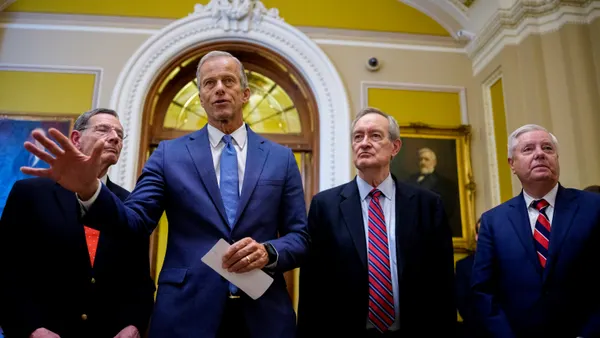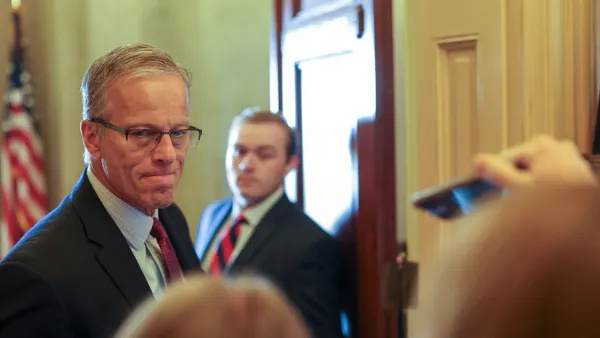The post has been updated to include a statement from Suniva.
Dive Brief:
- Bankrupt solar manufacturer Suniva is considering the sale of the company, according to new reports from Bloomberg. Potential interest may be coming from Chinese and Canadian solar firms.
- Suniva and SolarWorld earlier this year petitioned the U.S. International Trade Commission for import relief, and the commission unanimously found cause for severe injury. Three remedy recommendations were proposed.
- President Trump will have the final say on what remedies are used, which could include tariffs as high as 35%, quotas, capped imports or an import licensing fee. But if Suniva is sold, experts say it could impact a final decision on remedies.
Dive Insight:
President Trump has until Jan. 13 to make a decision on what trade remedies can be put in place to protect solar manufacturers. But as the clock winds down, potential interest in purchasing Suniva could impact his final decision.
According to Bloomberg, Suniva’s court-appointed Chief Restructuring Officer David Baker says the company is still in negotiations. Bankruptcy filings indicate possible interest from China's Longi Green Energy Technology Co. and Ontario-based Canadian Solar Inc.
It is unclear how serious the offers are, however. The head of Suniva's largest creditor, Jeremiah Silkowski, told the news outlet that the offers have been from "scrap dealers and vulture-type people," and said it still wants to find a solution through the trade case. And a Suniva spokesperson said the company did not solicit the offers.
"Because Suniva is in Chapter 11, Suniva is required to listen to offers that work through the bankruptcy court process which is part of Suniva emerging from bankruptcy which is the normal and required course of action for a debtor," spokesman Mark Paustenbach wrote to Utility Dive. The company continues to remain mum on future steps should tariffs be imposed beyond affirming plans to become operational following Trump's decision.
Suniva and SolarWorld petitioned the ITC in April for import relief under a Section 201 investigation of the 1974 Trade Act. The commission unanimously found cause for severe injury.
In October, the ITC recommended remedies that ranged from tariffs as high as 35% for crystalline silicon photovoltaic modules, alongside quotas, capped imports or an import licensing fee. A more detailed report was submitted to the White House in November, and President Trump will make the final determination on which of the remedies to utilize. He could also make changes to the recommendations or take no action.
However, the head of the U.S. Office of Trade Representative requested the U.S. International Trade Commission prepare a supplemental report to help President Trump make a final decision. In particular, Ambassador Robert Lighthizer wants the ITC to identify any "unforeseen developments" that led domestic solar manufactures to be injured by cheap imports from other countries.
Proponents and critics of solar import duties will have a final chance to weigh in next week. The hearing at the USTR is scheduled for Dec. 6.













